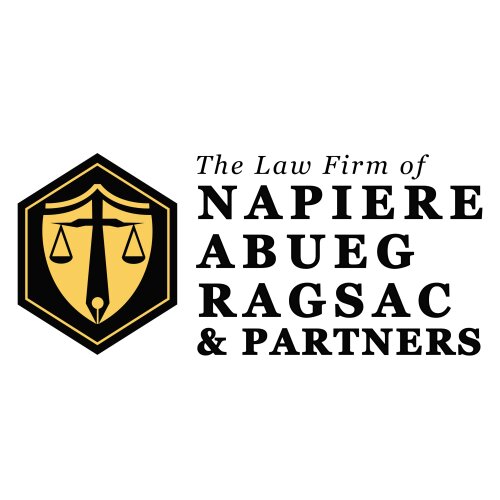Best Insurance Lawyers in Pasig
Share your needs with us, get contacted by law firms.
Free. Takes 2 min.
List of the best lawyers in Pasig, Philippines
About Insurance Law in Pasig, Philippines
Insurance law in Pasig, Philippines, is a critical facet of the legal system designed to manage and regulate the operations of insurance companies and the administration of insurance policies. It aims to protect the interests of policyholders, ensuring they are treated fairly and their rights are maintained. Pasig, being part of Metro Manila, operates under the broader national insurance laws of the Philippines. The insurance industry here is overseen by the Insurance Commission, which enforces compliance with regulations such as the Insurance Code of the Philippines, ensuring the stability and reliability of insurance operations within the city.
Why You May Need a Lawyer
There are various circumstances where legal assistance might be necessary for insurance matters. Common situations include disputes over insurance claims where an insurer may deny or inadequately settle a claim. Policyholders may also seek legal aid when they encounter unfair terms in policies or ambiguities that need clarification. Additionally, if you are a business negotiating insurance contracts, legal representation can ensure the terms are equitable and comprehensible, reducing future liability risks. Lawyers can also aid in instances of insurance fraud, whether you are a victim or accused party, offering expertise to navigate complex legal proceedings.
Local Laws Overview
The insurance industry in Pasig is primarily governed by the Insurance Code of the Philippines (Presidential Decree No. 1460), which establishes the legal framework for insurance contracts, the rights and duties of the insurer and the insured, and the regulatory standards for insurers operating in the country. Key aspects also cover mandatory insurances such as third-party liability insurance for vehicles and certain types of insurance for businesses and professionals. Laws also stipulate the processes for claim settlements and dispute resolutions, ensuring policyholders have accessible means of recourse if treated unfairly by insurance companies.
Frequently Asked Questions
What are the basic types of insurance available in Pasig?
The basic types of insurance typically available include health insurance, life insurance, motor vehicle insurance, property insurance, and liability insurance. Other specialized insurance types may also be available depending on specific needs.
Is it mandatory to have insurance in Pasig?
Yes, certain types of insurance are mandatory. For example, all motor vehicles are required to have third-party liability insurance. Additionally, businesses might be required to have specific types of insurance, such as occupational safety insurance.
How are insurance disputes typically resolved?
Insurance disputes can be resolved through negotiation, mediation, or arbitration. If these methods fail, disputes may be brought before the court. The Insurance Commission also offers mediation services to settle disputes between insurers and policyholders.
What should I do if my insurance claim is denied?
If your insurance claim is denied, review your policy details and the insurer's reasoning. If disputes continue, consider consulting with a legal professional to evaluate if the denial was unjustified and to explore options for filing an appeal.
Can I change my insurance provider if I am unsatisfied?
Yes, policyholders can change their insurance providers. However, it's essential to review the terms of your current policy for any penalties or conditions before making changes.
What is the role of the Insurance Commission in the Philippines?
The Insurance Commission regulates and supervises the insurance industry in the Philippines. It ensures that insurance companies comply with laws and regulations, promotes the interests of policyholders, and resolves disputes between insurers and insured parties.
How are insurance premiums determined?
Insurance premiums are typically determined based on factors such as the risk profile of the insured, policy coverage limits, deductibles, the insured's claims history, and overall market conditions.
What are the common exclusions in insurance policies?
Common exclusions can include acts of God (e.g., natural disasters), pre-existing conditions (for health insurance), intentional damage or harm, and certain high-risk activities. It's crucial to carefully read the policy to understand specific exclusions.
Can insurance policies be customized?
Yes, many insurance companies offer customizable policies that can be tailored to suit individual or business needs. Be sure to work with your provider to adjust coverage options, limits, and deductibles as necessary.
How can I verify if an insurance company is legitimate?
To verify the legitimacy of an insurance company, check if it is registered with and accredited by the Insurance Commission. You can visit the Commission's website or contact them directly for this information.
Additional Resources
If you are seeking further information or assistance regarding insurance in Pasig, the following resources may be helpful:
- Insurance Commission: The main regulatory body providing support and mediation services.
- Legal Aid Clinics: Offering free or low-cost legal advice, these clinics can be found throughout Metro Manila.
- Department of Trade and Industry (DTI): Assisting businesses with information related to insurance requirements.
- Local government offices in Pasig: Providing community-specific information and services.
Next Steps
If you need legal assistance with insurance matters in Pasig, consider taking the following steps:
- Identify your specific issue or need-whether it’s a dispute, the need for policy clarification, or another concern.
- Gather all relevant documents such as your insurance policy, correspondence with the insurer, and any evidence related to your concern.
- Contact a licensed lawyer who specializes in insurance law to discuss your case. Personal recommendations or directories from the Integrated Bar of the Philippines can be helpful in finding a suitable attorney.
- Consider reaching out to the Insurance Commission for preliminary guidance and support, especially in dispute resolution.
- Use additional resources and support networks for further assistance and information.
Lawzana helps you find the best lawyers and law firms in Pasig through a curated and pre-screened list of qualified legal professionals. Our platform offers rankings and detailed profiles of attorneys and law firms, allowing you to compare based on practice areas, including Insurance, experience, and client feedback.
Each profile includes a description of the firm's areas of practice, client reviews, team members and partners, year of establishment, spoken languages, office locations, contact information, social media presence, and any published articles or resources. Most firms on our platform speak English and are experienced in both local and international legal matters.
Get a quote from top-rated law firms in Pasig, Philippines — quickly, securely, and without unnecessary hassle.
Disclaimer:
The information provided on this page is for general informational purposes only and does not constitute legal advice. While we strive to ensure the accuracy and relevance of the content, legal information may change over time, and interpretations of the law can vary. You should always consult with a qualified legal professional for advice specific to your situation.
We disclaim all liability for actions taken or not taken based on the content of this page. If you believe any information is incorrect or outdated, please contact us, and we will review and update it where appropriate.
Browse insurance law firms by service in Pasig, Philippines
Pasig, Philippines Attorneys in related practice areas.










